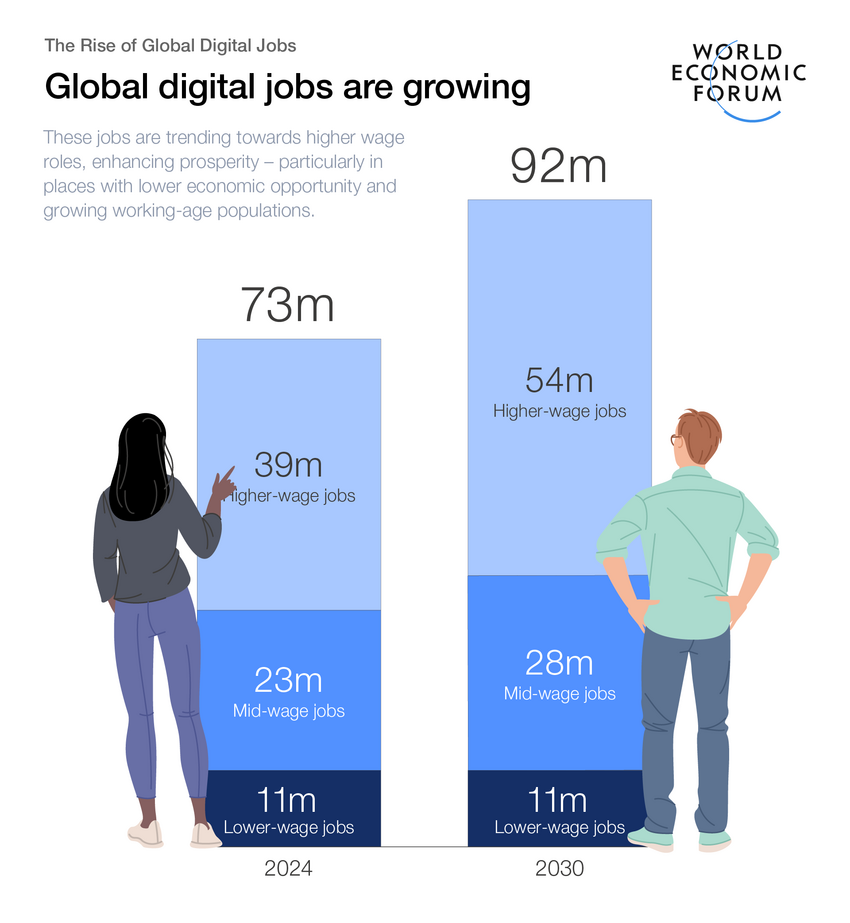
'Global employers need to complement traditional approaches to workforce management with new tools'

Global digital jobs are expected to surge to around 92 million by 2030, according to the World Economic Forum in a new white paper.
The paper, produced in collaboration with tech firm Capgemini, looked into digital jobs that can be performed remotely from anywhere.
It said the number of such global digital jobs will rise to 73 million this 2024. By 2030, these jobs will be balloon by roughly 25% to around 92 million.
"These jobs are skewed more towards higher-paying roles due to growth in higher-wage global digital jobs, decline in lower-wage global digital jobs, and the new global digital jobs being exclusively high- and middle-income roles," the paper read.

The paper said 218 job types out of 5,400 are conducive to becoming digital jobs.
These jobs represent a total of 73 million workers out of the 820 million total global workers who are represented by the International Labour Organisation's occupational employment statistics.
Among these job types, 40% are in accounting, as well as legal and finance roles, according to the paper. Customer service representatives, marketing, advertising and communication professionals, as well as IT professionals each make up around 10% of total jobs.
The WEF said global digital jobs present employers with the opportunity to utilise talent around the world, widening their talent pools and providing countries with economic growth pathways.
This will require, however, broad access to digital infrastructure, educational and vocational training programmes, and competition on skills and talent rather than lower wages, according to the report.
"Global employers, meanwhile, need to complement traditional approaches to workforce management with new tools, proactively expanding recruitment pools and creating a culture that embraces hybrid operating models for all workers," the report read.